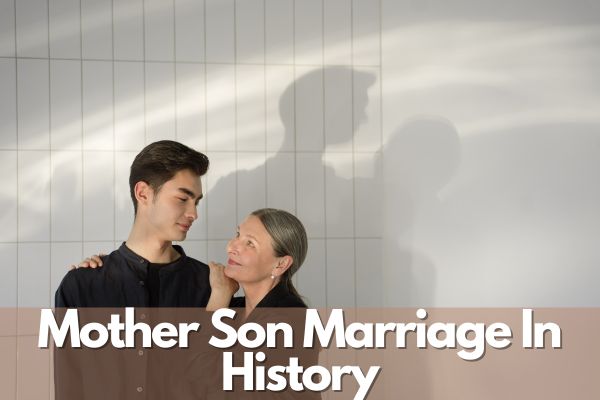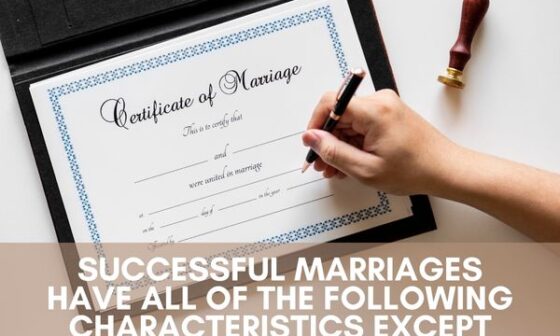Mother son marriage in history has intrigued scholars and historians alike, providing a unique lens through which to explore cultural practices and societal dynamics.
This article delves into the fascinating historical instances of mother-son marriages, examining their prevalence and significance in ancient civilizations such as Egypt and Greece, as well as pre-colonial societies like the Incas and Polynesians.
Additionally, it touches upon modern perspectives, legal considerations, and ethical implications surrounding this controversial topic. By exploring the historical and cultural contexts, we gain valuable insights into human relationships and the ever-evolving nature of societal norms.
Mother Son Marriage
The term “mother-son marriage” refers to a matrimonial union or marital relationship between a man and his biological or adoptive mother. It involves a romantic, sexual, and legal partnership between a son and his mother, defying the traditional societal norms and cultural practices surrounding marriage.
Mother-son marriage is considered highly taboo and is generally considered incestuous in most cultures and legal systems worldwide. The implications and consequences of such unions vary across different historical periods, societies, and legal frameworks.
Historical Context And Prevalence Of Mother Son Marriage
The historical context of mother-son marriage varies across different civilizations and time periods. It is important to note that mother-son marriage has been extremely rare and largely considered taboo in the vast majority of cultures throughout history. However, there have been isolated instances where mother-son marriages occurred, particularly within specific ancient civilizations.
In some ancient Egyptian royal lineages, there are recorded instances of mother-son marriages. These unions were primarily practiced within the ruling elite to maintain royal bloodlines and consolidate power.
Pharaohs, who were believed to be divine, sometimes married their own mothers or close female relatives to strengthen their claim to the throne and ensure the purity of their lineage.
In ancient Greece, mother-son marriages were extremely rare and mostly confined to mythology and legends rather than actual historical practice. Greek mythology features a few instances of mother-son unions among gods and goddesses, reflecting the complex nature of their divine lineage and familial relationships. These mythological narratives, such as the marriage of Zeus and his mother Rhea, were not intended to promote or endorse real-life mother-son marriages.
Outside of ancient Egypt and Greece, the prevalence of mother-son marriages in history is scarce. It is essential to recognize that these cases were exceptions rather than widespread practices.
In the vast majority of societies, including pre-colonial civilizations, mother-son marriage was considered incestuous and socially unacceptable. The taboo nature of such unions often led to severe social stigmatization and legal consequences.
It is crucial to understand that the historical prevalence of mother-son marriage is minimal, and it should not be misconstrued as a common or accepted practice throughout history. It remains an outlier in the broader context of marriage customs and societal norms.
The Role Of Mother Son Marriage In The Royal Lineage
Mother-son marriage played a significant role in certain ancient royal lineages, particularly in Egypt. In these contexts, the practice was primarily driven by the desire to maintain a pure and uncontested royal bloodline, as well as to consolidate power and maintain control over the throne.
In ancient Egypt, the pharaoh was considered a divine ruler, believed to possess a direct connection to the gods. The legitimacy of their rule was often associated with their divine lineage and ancestry. To ensure the purity of this divine bloodline, pharaohs sometimes engaged in mother-son marriages. By marrying their own mothers or close female relatives, they aimed to maintain a direct ancestral line and strengthen their claim to the throne.
The union between a pharaoh and his mother or close relative served to establish a direct familial connection to previous ruling pharaohs. This connection was crucial for the pharaoh’s legitimacy, as it demonstrated their direct descent from the gods and established their divine right to rule.
Additionally, marrying within the family helped consolidate power and prevent potential rival claims to the throne from other noble families.
Furthermore, mother-son marriages in ancient Egypt were often accompanied by elaborate religious rituals and ceremonies. These ceremonies emphasized the divine nature of the pharaoh and reinforced the sacred status of their union. The mother-son marriage became a symbol of the pharaoh’s elevated position as a god-king and the continuity of their divine lineage.
Overall, the role of mother-son marriage in royal lineages, particularly in ancient Egypt, revolved around maintaining the purity of the royal bloodline, establishing divine legitimacy, and consolidating power within the ruling family. While these practices were specific to certain ancient civilizations and were not widespread, they offer insights into the complex dynamics of ancient royalty and the intersection of power, religion, and familial ties.
Examples Of Mother Son Marriages Among Egyptian Pharaohs
While mother-son marriages were not widespread among Egyptian pharaohs, there are a few recorded instances of such unions in ancient Egyptian history. Here are a couple of examples:
1. Akhenaten and Nefertiti
One notable example is the marriage between Pharaoh Akhenaten and his wife, Queen Nefertiti. Akhenaten, also known as Amenhotep IV, ruled during the 18th Dynasty of ancient Egypt in the 14th century BCE. It is believed that Nefertiti was the daughter of Ay, who may have been Akhenaten’s biological father or stepfather.
Thus, Nefertiti was either Akhenaten’s half-sister or step-sister. Their marriage could be considered a form of mother-son marriage due to the familial relationship between Akhenaten and Nefertiti.
2. Tutankhamun And Ankhesenamun
Another notable example is the marriage between Pharaoh Tutankhamun (often referred to as King Tut) and his wife, Ankhesenamun. Tutankhamun was the son of Akhenaten and his likely sister-wife, Queen Kiya. After the death of Tutankhamun’s father and his probable mother, Ankhesenamun married her own half-brother Tutankhamun to maintain the bloodline and royal succession. This marriage is an example of a mother-son marriage within the royal family.
It’s worth noting that these examples of mother-son marriages among Egyptian pharaohs were not the norm but rather specific instances within a particular historical and cultural context.
The practice of mother-son marriage was primarily limited to the ruling elite and aimed at preserving the royal lineage and consolidating power.
Social And Cultural Implications Of Mother Son Marriage In Ancient Egypt
Mother-son marriages in ancient Egypt, particularly among the pharaohs, had significant social and cultural implications. These unions were deeply intertwined with the religious, political, and societal fabric of ancient Egyptian civilization.
Here are some of the key implications:
1. Divine Kingship And Legitimacy
The pharaoh was considered a divine ruler, believed to be the intermediary between the gods and the mortal world. Mother-son marriages reinforced the pharaoh’s divine status and ensured the purity of the royal bloodline.
By marrying their own mothers or close female relatives, pharaohs aimed to maintain a direct ancestral connection to previous ruling pharaohs, emphasizing their divine legitimacy as the chosen ruler.
2. Ancestral Continuity
Mother-son marriages in ancient Egypt were seen as a means to preserve the continuity of the ruling dynasty. By marrying within the family, the pharaoh ensured that the throne remained within their immediate lineage, preventing potential power struggles or rival claims from other noble families.
It established a direct familial connection to previous rulers, reinforcing the sense of continuity and stability in the kingdom.
3. Symbolic Union Of Deities
In Egyptian mythology, gods and goddesses often married within their own divine families to maintain the purity of their lineage. Mother-son marriages among pharaohs mirrored these divine unions, symbolically associating the pharaoh with the gods and goddesses.
It created a parallel between the divine realm and the earthly rulership, reinforcing the pharaoh’s divine nature and his authority to rule.
4. Social Hierarchy And Nobility
Mother-son marriages were primarily practiced within the ruling elite of ancient Egypt. It reinforced the social hierarchy and distinction between the nobility and the common people. The practice of intermarriage within the royal family set the ruling class apart from the general population, underscoring their privileged status and exclusivity.
5. Stability And Order
Mother-son marriages were seen as a means to maintain stability and order within the kingdom. By ensuring the direct succession of the pharaoh, potential power struggles or conflicts over the throne were minimized. The practice aimed to provide a sense of predictability and continuity, which were highly valued in ancient Egyptian society.
Overall, the social and cultural implications of mother-son marriages in ancient Egypt were rooted in the divine nature of the pharaoh, the preservation of the royal lineage, and the maintenance of social order and stability. These unions were intricately tied to the religious, political, and social structures of ancient Egyptian civilization.
The Influence Of Mother Son Marriages On Greek Mythology
Mother-son marriages have had a notable influence on Greek mythology, shaping the narratives and relationships among the gods and goddesses. While these unions were not reflective of real-life practices in ancient Greece, they played a significant role in the mythological realm. Here are some key influences of mother-son marriages on Greek mythology:
1. Divine Lineage And Power Dynamics
Mother-son marriages in Greek mythology were often used to establish and reinforce divine lineage and power dynamics. The gods and goddesses were depicted as a close-knit family with complex relationships.
Marriages between mothers and sons, such as Zeus and his mother Rhea, highlighted the intergenerational power struggles and the transfer of authority within the divine realm.
2. The Symbolism Of Fertility And Creation
Mother-son marriages in Greek mythology often represented the primal forces of fertility and creation. The union of mother and son symbolized the cyclical nature of life, where the son, born from the mother, carried the potential for growth, renewal, and the continuation of the divine lineage. This symbolism was particularly evident in the myth of Demeter and her son, Persephone, which was connected to the changing seasons and agricultural cycles.
3. Themes Of Conflict And Destiny
Mother-son marriages introduced themes of conflict and destiny in Greek mythology. These unions sometimes created tensions within the divine family, leading to power struggles and prophecies of doom.
For example, the marriage of Oedipus to his mother Jocasta was a tragic tale driven by the fulfillment of a prophecy and the inevitable consequences of their forbidden union.
4. Portrayal Of Divine Intervention
Mother-son marriages in Greek mythology often served as a means for the gods and goddesses to intervene in mortal affairs. The gods’ involvement in mortal lives through parent-child relationships, such as Athena and her relationship with various mortal heroes, highlighted their guidance, protection, and influence over human destinies.
5. Exploration Of Taboos And Moral Dilemmas
Mother-son marriages in Greek mythology also explored taboos and moral dilemmas. These narratives delved into the complexities of forbidden love, incestuous desires, and the consequences that befell those who defied societal norms.
The tragedies resulting from such unions served as cautionary tales, showcasing the destructive outcomes of crossing these boundaries.
Overall, mother-son marriages in Greek mythology played a crucial role in shaping the narratives, themes, and character dynamics within the divine realm.
These unions were vehicles for exploring power dynamics, fertility symbolism, conflicts, and moral dilemmas, offering insights into the complexities of human relationships and the divine realm in Greek mythology.
The Societal Perception And Acceptance Of Mother Son Marriages In Ancient Greece
In ancient Greece, societal perception and acceptance of mother-son marriages were vastly different from the mythological narratives that featured such unions. In reality, mother-son marriages were considered incestuous and were generally condemned by Greek society.
Greek cultural and moral values strongly opposed these types of relationships, considering them to be a violation of natural and social order. Here are some key points regarding the societal perception and acceptance of mother-son marriages in ancient Greece:
1. Taboo And Social Stigma
Incestuous relationships, including mother-son marriages, were seen as taboo and carried a heavy social stigma in ancient Greece. These unions violated established norms and kinship boundaries, contradicting the ideals of familial and societal order. Engaging in such relationships would have subjected individuals to severe social censure and condemnation.
2. Legal And Religious Prohibitions
Mother-son marriages were also prohibited by Greek laws and religious customs. The incestuous nature of these unions conflicted with the legal and religious frameworks that governed marriage and family relationships. Violating these prohibitions could result in legal penalties and religious sanctions.
3. Preservation Of Lineage And Inheritance
Greek society placed great importance on the preservation of family lineage and inheritance. Mother-son marriages threatened this system by potentially blurring the lines of descent and creating confusion in terms of inheritance rights. The concern for maintaining clear and uncontested family lineages reinforced the societal rejection of such unions.
4. Moral And Ethical Considerations
Greek philosophical and ethical systems, including those of thinkers like Aristotle and Plato, emphasized moral virtues and the pursuit of the greater good. Mother-son marriages were seen as morally reprehensible due to the violation of the natural order and the potential harm it could cause to individuals and society.
The focus on moral integrity and the well-being of the community further contributed to the societal rejection of these relationships.
5. Cultural And Literary Criticism
Ancient Greek literature, including plays and poetry, often criticized and condemned incestuous relationships, presenting them as morally corrupt and tragic. These literary works reflected and reinforced the prevailing societal attitudes toward mother-son marriages.
Examples include the myth of Oedipus, where the eponymous character unknowingly marries his own mother, leading to disastrous consequences and a commentary on the unnaturalness of such unions.
In summary, societal perception and acceptance of mother-son marriages in ancient Greece were strongly negative. They were considered taboo, socially stigmatized, and legally prohibited. Greek cultural, moral, and ethical values emphasized the importance of preserving family lineages, adhering to kinship boundaries, and maintaining moral integrity.
These societal attitudes were in stark contrast to the mythological narratives that occasionally featured mother-son unions.
The Practice Of Noble Mother Son Marriages Among The Incas
There is no historical evidence to suggest that noble mother-son marriages were a common or accepted practice among the Incas, the indigenous civilization that thrived in the Andean region of South America prior to the Spanish conquest.
Inca society had its own distinct social and familial structures, and there is no substantial documentation or archaeological findings to support the notion of widespread mother-son marriages.
The Incas had a highly organized and hierarchical society, where marriage alliances played a significant role in political and social dynamics. Marriages within the nobility were often strategic and aimed at consolidating power, forming alliances between different lineages, and ensuring the succession of rulers. However, these alliances typically involved marriages between individuals from different lineages or noble families rather than mother-son marriages.
It is worth noting that some accounts from the Spanish conquistadors, who were the primary historical sources of information about the Inca civilization, may contain distorted or biased information. These accounts should be approached with caution, as they may have misrepresented or misunderstood certain aspects of Inca culture.
Based on the available historical evidence, there is no indication that noble mother-son marriages were a prevalent or accepted practice among the Incas. The Inca society had its own distinct customs and practices regarding marriage and political alliances, which did not include widespread mother-son marriages.
Mother Son Marriages In Polynesia And The Pacific Islands
Mother-son marriages were not prevalent or accepted practices in Polynesia and the Pacific Islands. These cultures had their own distinct marital customs, kinship systems, and social norms, which did not typically include mother-son unions.
It is important to note that practices and customs varied across different islands and regions within Polynesia and the Pacific Islands, so there may be some variations or exceptional cases in specific contexts. However, in general, mother-son marriages were not a common or accepted part of the traditional cultural practices in these societies.
Marriage and kinship in Polynesian and Pacific Island cultures were often governed by complex systems of descent, alliance, and social organization. Marriages were typically arranged within specific kinship groups or clans to maintain social harmony, strengthen alliances, and ensure the continuation of lineages.
Marriages were often based on factors such as social status, familial connections, and economic considerations, rather than incestuous relationships between mothers and sons.
Incestuous relationships, including mother-son unions, were generally seen as taboo and socially unacceptable in these cultures. They violated the established kinship and marriage rules that regulated social order and the balance between different kinship groups.
Such relationships would have been met with disapproval, social censure, and potentially legal consequences.It is important to approach historical accounts and ethnographic research with sensitivity and cultural context when examining the practices of Polynesian and Pacific Island cultures.
While there may be some rare instances or exceptional cases reported in historical or anthropological records, the overall consensus is that mother-son marriages were not prevalent or accepted practices within these societies.
Modern And Contemporary Perspectives On Mother Son Marriages
1. Ethical And Moral Considerations
Mother-son marriages continue to face ethical and moral considerations in modern times. The practice is widely viewed as incestuous and violates social and cultural norms.
Society perceives such unions as a breach of the natural order of familial relationships and raises concerns about the potential for abuse of power dynamics and psychological harm within the family unit.
2. Psychological And Social Implications
Individuals involved in mother-son marriages may face significant psychological and social implications. Such unions can lead to complex emotional dynamics, identity conflicts, and feelings of guilt or shame. Social stigmatization and rejection from the wider community can also impact the well-being and social integration of those involved in such relationships.
3. Legal Perspectives And Prohibitions
Most countries have legal prohibitions against mother-son marriages. These laws are in place to prevent incestuous relationships and protect individuals from potential harm and exploitation.
Incest laws vary across jurisdictions, with some countries criminalizing all forms of incestuous relationships, including mother-son marriages, while others focus on prohibiting relationships between close-blood relatives.
The legal perspective recognizes the potential harms associated with such unions and seeks to deter and prevent them.
Instances Of Mother Son Marriages In Modern Times And Their Consequences
While mother-son marriages remain extremely rare in modern times, there have been isolated cases that gained attention due to their controversial nature.
These instances often involve unconventional or fringe groups with alternative belief systems or cultural practices. The consequences of such marriages can vary greatly, including legal repercussions, social ostracization, and severe strain on familial relationships.
Children born from these unions may face complex legal and social challenges in terms of their identity and place in society.
It is important to note that the overwhelming majority of societies, both traditional and modern, condemn and prohibit mother-son marriages. These unions are considered socially, morally, and ethically unacceptable due to the potential for harm, violation of family structures, and societal norms.
The perspectives on mother-son marriages reflect a collective recognition of the importance of maintaining healthy familial relationships, protecting individuals from harm, and upholding broader social values and standards.
Conclusion
The exploration of mother-son marriage in history offers valuable insights into the intricacies of ancient civilizations and their cultural practices. From ancient Egypt and Greece to the Incas and Polynesians, the historical instances of mother-son marriages shed light on the role of lineage, power dynamics, and societal acceptance.
While modern perspectives lean towards ethical concerns and legal prohibitions, understanding the historical context allows us to appreciate the diverse tapestry of human relationships throughout time.
By reflecting on the changing societal attitudes and cultural evolution, we are better equipped to navigate and comprehend the complexities of human connections in the present and future.”







